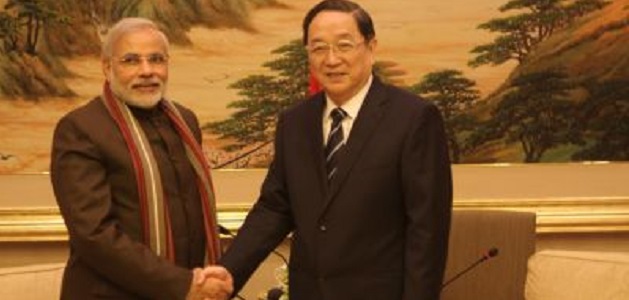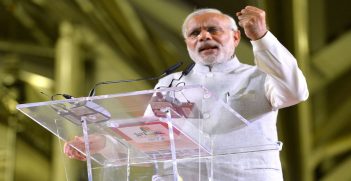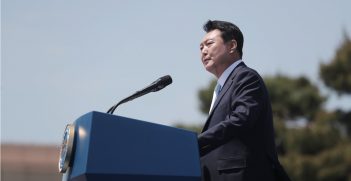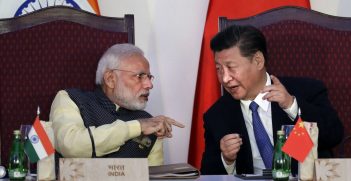Superpower India? When Foreign Policy does not Serve the National Interest

India’s ambitions of becoming a superpower threaten more pressing domestic priorities.
The funding of foreign policy has always entailed a necessary balancing act between domestic and foreign priorities. Governments who overspend on foreign policy may inevitably face domestic backlash, jeopardising the sustainability of their country’s international position. As Asia rises despite significant development challenges, this dilemma has never been more pertinent. In the event of a conflict between foreign and domestic policy, should governments prioritise the tangible everyday needs of citizens, or alternatively, the exigencies of strategic competition?
Few countries in the world face this dilemma as much as India, which is often labelled as Asia’s second “rising power”. Despite boasting a decade of economic growth exceeding 7 percent and a growing billionaire class, it would be an understatement to say that India faces colossal development hurdles.
India’s growth has been highly unequal and despite the soaring skyscrapers in Mumbai, India has a literacy rate of just over 70 percent, while over 270 million of its citizens live in poverty and 6.3 million of children under the age of 15 die every year. Compounding matters further, are the significant environmental challenges faced by New Delhi. Well over one million people are estimated to have died from the effects of pollution in 2017 alone, while the country is expected to be hit particularly hard by climate change.
Despite these challenges, India has been engaged in a frantic and costly competition with China for influence in Asia, and indeed far further afield in Africa. Much to the concern of foreign policy mandarins in New Delhi, Chinese largesse has steadily eroded India’s hitherto quasi-hegemonic status in neighbouring countries including Nepal, Sri Lanka, the Maldives, and to a lesser extent, Myanmar. To shore up its sphere of influence, under Prime Minister Modi, India has recently redoubled its commitment to its “Act East” policy. This action aims to counter China’s increasing footprint in Asia, as well as realise India’s own aspirations to be a regional power.
Perhaps most remarkably given the developmental challenges already cited, India has been engaged in extensive competition with China for influence in Africa. Thus far, India has invested around $40 billion in the continent and engaged its military in peacekeeping training operations and naval stopovers.
With the inauguration of the Indo-Japanese, Asia Africa Growth Corridor (AAGC), which effectively seeks to counter China’s One Belt One Road (OBOR) initiative through the creation of a “sea corridor” connecting the two continents, Indian investments will only grow. New Delhi seems to have heeded calls within the foreign policy establishment to match Chinese investment in Africa, which already totals over $100 billion.
Certainly, both East Act and AAGC have a clear strategic rationale. India wants to preserve its traditional sphere of influence and stop China from creating more military footholds in the Indian Ocean – it already has one in Djibouti – which would overlook key Indian trade routes and substantially reduce the countries freedom of strategic manoeuvre. Foreign policy is conducted on the basis of worst-case scenarios, and a strong sphere of influence of course substantially reduces the chance that China would invade India. Obviously, investments in Africa also present significant opportunities for Indian companies.
Yet, when the basic purpose of foreign policy itself is actually considered – protecting the economic and security interests of the nation – the rationale for the sheer scope of India’s strategic endeavours becomes a more opaque. The fact is that the billions spent on Act East and AAGC could be spent on poverty alleviation and the provision of basic services and infrastructure within India.
This fact has also been noted in China, where some have lamented the seemingly unstoppable stream of capital outflow exiting the country, even when many rural areas continue to struggle with poverty. India of course, faces even larger issues, and will need US $4.5 trillion by 2040 to meet its infrastructure needs.
Even from a more traditional security perspective, with only a finite budget and a relatively low taxpayer base, the money spent in Africa and India’s near abroad could arguably be better spent policing the Kashmir and containing the Maoist insurgency which boasts approximately 10,000 armed fighters – the largest Communist insurgency in the world outside Syria.
With both major parties committed to an expansive foreign policy, the question can be legitimately asked as to whether India’s political class has the country’s best interests at heart. Whilst it would be politically questionable and strategically irresponsible for India to solely focus on its own development needs, the scale of India’s competition with China, particularly its investments in Africa, must be called into question.
At present, India’s foreign policy looks more like an attempt to win the nationalist vote and fulfil the esoteric “Great Power” dreams of political elites. In another sense, India’s foreign policy elite may be merely attempting to behave as they think a state of India’s size and historic stature ought to. Such a strategy risks severely compromising India’s human development, as well as incurring significant, isolationist political blowback, akin to what was seen in the US with the election of Trump and his “America First” platform. India would ultimately be better served by pursuing a more modest foreign policy, which attempts to secure its near abroad whilst not compromising its very serious and ongoing developmental challenges.
The weight of economic, military and political power is inevitably moving east. Inevitably, at some point, India will once again resume its historic status as a great power. A more prudent strategy would see India bide its time and gets its own house in order, before it focuses on assuming its rightful status as a regional, if not global power.
Henry Storey is an Analyst at Foreign Brief and an editor at Young Australians in International Affairs.
This article is published under a Creative Commons Licence and may be republished with attribution.





